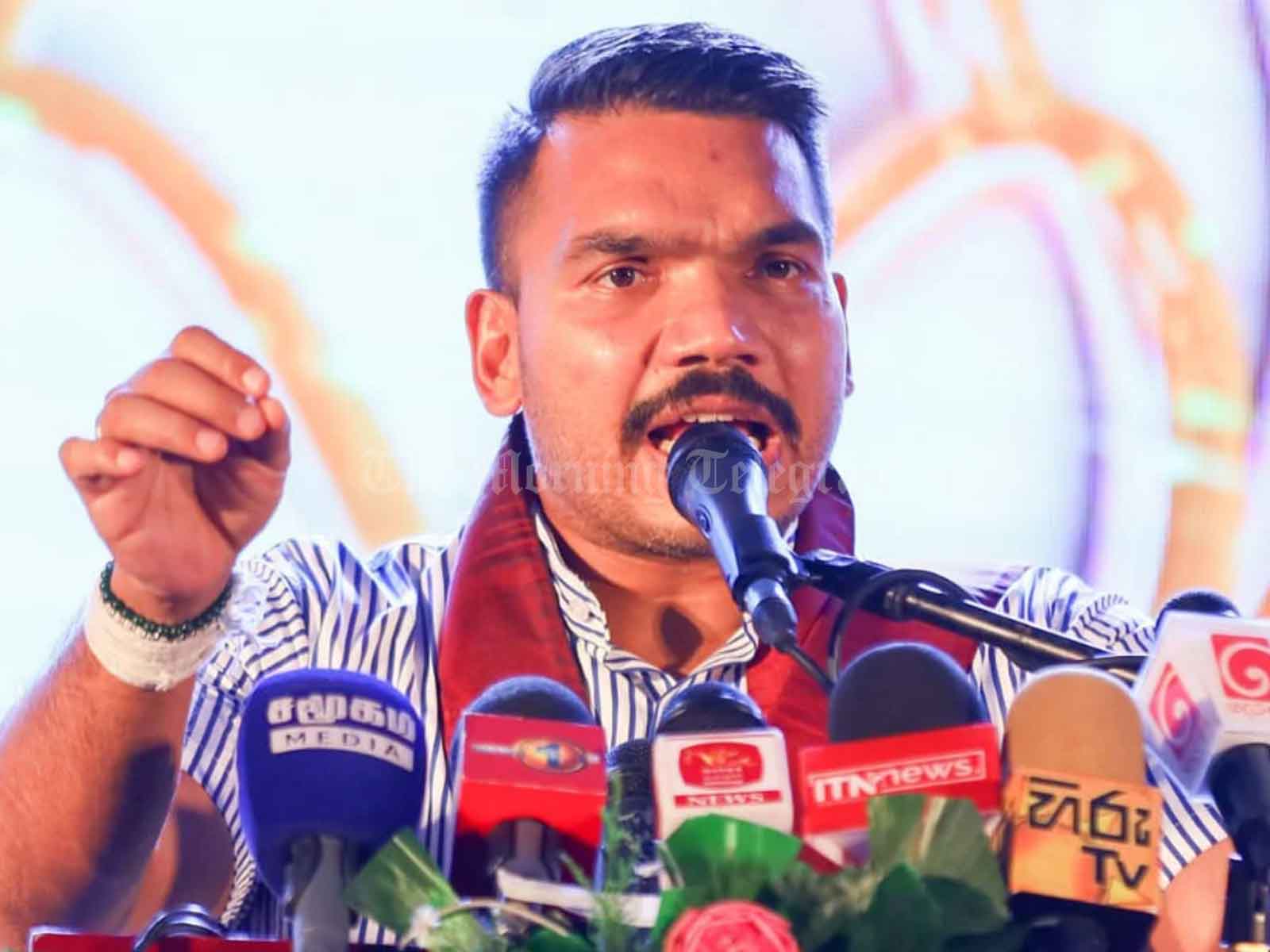
Speaking at a Sri Lanka Podujana Peramuna (SLPP) constituency meeting in Dambulla, presidential candidate Namal Rajapaksa laid out an ambitious vision to make Sri Lanka the fastest developing country by 2035. He credited the leadership of his father, former President Mahinda Rajapaksa, for ending the country’s civil war and initiating large-scale development projects.
Namal emphasized the importance of the infrastructure his father’s government built, particularly the highways that connected the northern and southern parts of Sri Lanka. “We had a plan back then, and it worked. These highways are vital for economic growth, and even those who criticized us now recognize their value. We were ahead of our time,” he said.
The SLPP’s future plans focus heavily on both infrastructure and technological growth. Namal detailed proposals to extend highways to major cities like Kandy and Dambulla, establishing economic centers to stimulate local industries and tourism. He explained that these highways would not only improve connectivity but also foster technology-based industries, offering high-paying jobs to local youth.
“We want to make Dambulla a key economic hub. When highways connect this region, it will open up new opportunities in tourism, agriculture, and technology. We are working on establishing industries that will integrate modern technologies, making sure the local youth benefit with high-wage jobs,” he elaborated.
One of Namal Rajapaksa’s key talking points was the need to modernize Sri Lanka’s education system. He proposed restructuring the system to allow students more flexibility, offering them pathways to either university education or vocational and technical training. “Every child in Sri Lanka should have the right to choose whether they pursue traditional higher education or technical skills that will enable them to become entrepreneurs,” Namal said.
He outlined a plan to create 2 million jobs in the technical and manufacturing sectors within the next decade, citing the potential for growth in both local industries and international partnerships. “We are committed to empowering youth by giving them the necessary training and opportunities to build their futures. This isn’t just a promise — it’s a well-thought-out plan that will provide sustainable jobs,” he noted.
Namal Rajapaksa reiterated SLPP’s commitment to the rural economy, particularly in supporting farmers and local industries. He advocated for using technology to maximize agricultural productivity, ensuring that every cultivable inch of land is put to use. “We believe in supporting our farmers, fishermen, and workers. We aren’t a government that waits for outside help; we will grow what we need and build industries that will sustain us,” he stated.
The SLPP’s approach includes providing financial assistance to local entrepreneurs through rural and cooperative banking systems, with the goal of expanding small businesses and creating jobs in every divisional secretariat across the country.
Namal also spoke about the importance of national unity, emphasizing that the SLPP fought against terrorism, not the Tamil people, during the civil war. “We are a political force that values the culture and traditions of Sri Lanka. While our party is deeply rooted in Buddhist values, we respect and will protect the cultural diversity of our nation,” he asserted.
In conclusion, Namal said, “We are not a group of traitors or opportunists. We have always loved and served this country. With the support of the people, we will turn Sri Lanka into the most developed country by 2035, creating a prosperous future for all.”
This vision, he promised, would be realized through hard work, clear planning, and a commitment to the people of Sri Lanka.




